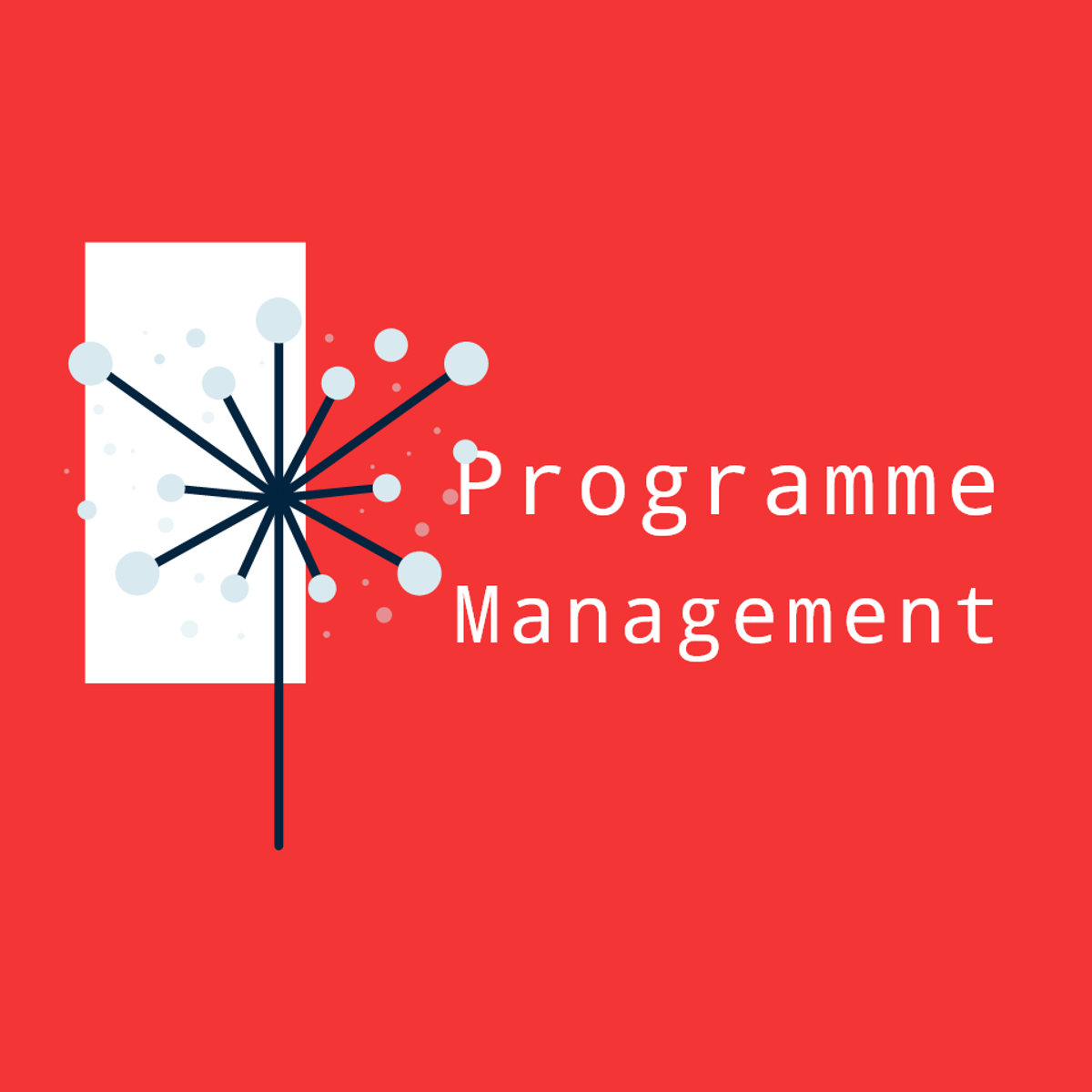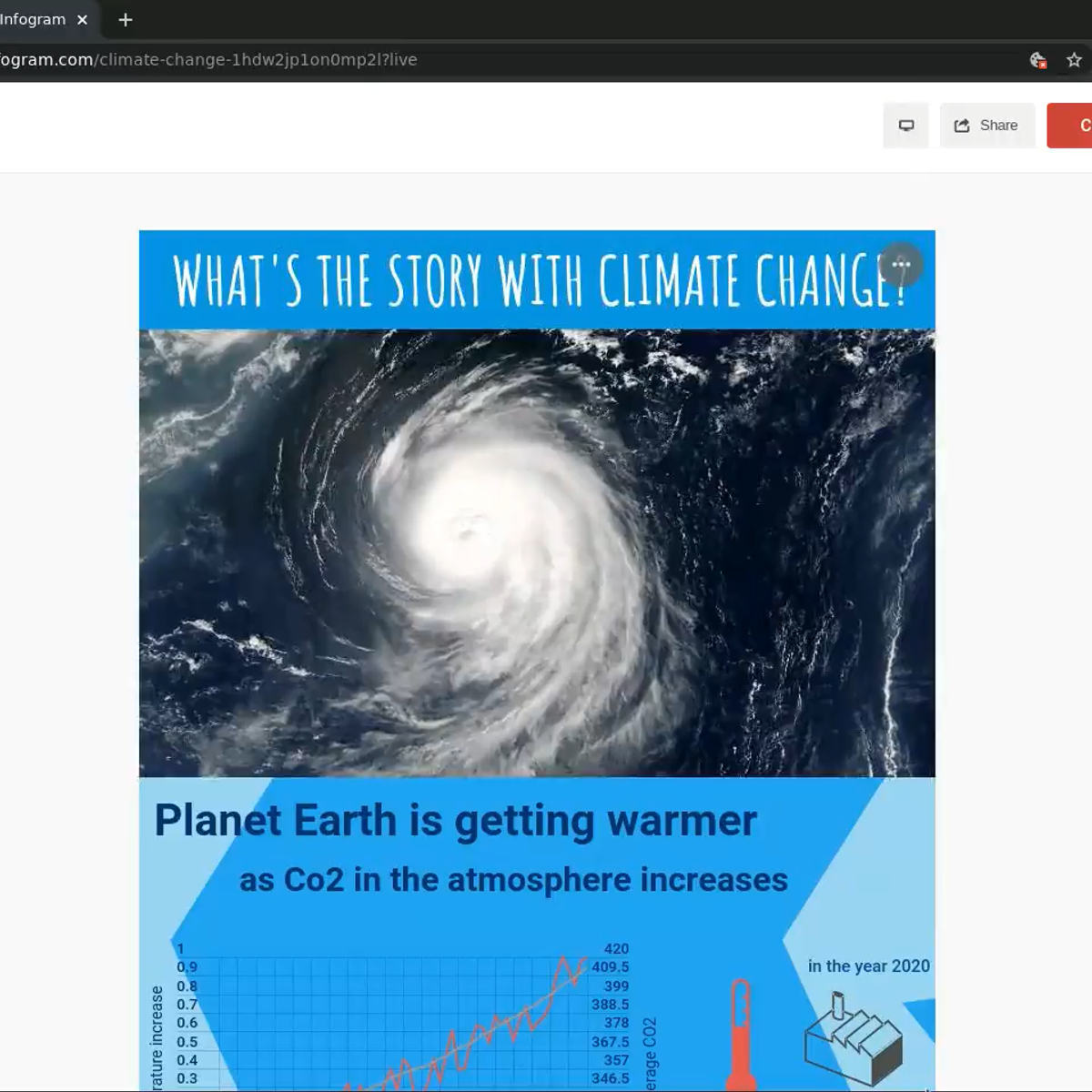Fundraising Manager
A Career Guide to Fundraising Management
A Fundraising Manager plays a crucial role within organizations, primarily nonprofits, educational institutions, political campaigns, and healthcare systems, by planning, directing, and coordinating efforts to raise money. At its core, this role is about building relationships and securing financial support to enable an organization to achieve its mission and goals. Fundraising Managers are the strategists behind donation campaigns, grant applications, and donor engagement initiatives.
Imagine being the person who helps fund groundbreaking medical research, provides scholarships for deserving students, or supports vital community services. That's the potential impact of a Fundraising Manager. This career offers the chance to blend strategic thinking with persuasive communication and a passion for a cause. It's a dynamic field where success is measured not just in dollars raised, but in the tangible difference made in the world.
What is a Fundraising Manager?
Definition and Core Purpose
A Fundraising Manager is a professional responsible for generating income for an organization through various activities like soliciting donations, writing grant proposals, organizing fundraising events, and managing donor relationships. Their primary goal is to secure the necessary funds to support the organization's operations, programs, and strategic objectives. They act as key liaisons between the organization and its supporters, ensuring that donor interests align with the organization's needs and mission.
Think of a Fundraising Manager as the financial engine driving a cause-driven organization. They don't just ask for money; they craft compelling narratives about the organization's impact, identify potential supporters (individuals, foundations, corporations), and cultivate long-term relationships built on trust and shared values. Their work ensures the financial health and sustainability of the organization, allowing it to continue its important work.
This role demands a unique blend of skills, including strategic planning, financial acumen, marketing savvy, interpersonal communication, and a deep understanding of the philanthropic landscape. They must be adept at managing budgets, tracking progress towards goals, and reporting on fundraising outcomes to stakeholders, including the board of directors and senior leadership.
Historical Evolution of Fundraising as a Profession
Fundraising, in some form, has existed for centuries, often tied to religious institutions, community projects, or support for the arts. However, its professionalization is a more recent phenomenon, gaining significant traction in the 20th century, particularly in the United States. Early efforts were often volunteer-led or managed part-time by organizational leaders.
The growth of the nonprofit sector, increased competition for funding, and the need for more sophisticated strategies led to the emergence of dedicated fundraising roles. Pioneers in the field developed structured approaches, emphasizing donor research, relationship building (stewardship), and ethical practices. Organizations like the Association of Fundraising Professionals (AFP) were established to set standards and promote professional development.
The digital age has further transformed fundraising, introducing new tools and channels like online giving platforms, social media campaigns, and data analytics. This evolution continues, demanding that modern Fundraising Managers be adaptable, tech-savvy, and constantly learning to navigate the changing philanthropic environment.
Key Industries and Sectors Employing Fundraising Managers
Fundraising Managers are most commonly found in the nonprofit sector. This includes a vast array of organizations such as charities focused on social services, health, environment, animal welfare, and international development. Educational institutions, from K-12 schools to universities, rely heavily on fundraising managers (often titled Development Officers or Advancement Managers) to support scholarships, research, and campus improvements.
Healthcare systems, including hospitals and medical research foundations, employ fundraising professionals to secure funding for patient care, equipment, and scientific discovery. Arts and cultural organizations like museums, theaters, and orchestras also depend on fundraising to support their programs and operations. Advocacy groups and political campaigns represent another significant area, raising funds to support specific causes or candidates.
While less common, some for-profit companies, particularly social enterprises or those with strong corporate social responsibility (CSR) programs, might employ individuals in roles similar to fundraising management, focusing on securing grants or investments aligned with social impact goals.
Global Relevance and Cultural Variations
The need for fundraising exists globally, but practices and cultural norms can vary significantly. In some cultures, philanthropy is deeply ingrained and publicly celebrated, while in others, giving may be more private or directed primarily through religious channels. Legal and regulatory frameworks governing donations and nonprofit organizations also differ substantially from country to country.
International NGOs and organizations operating across borders must navigate these cultural nuances and legal complexities. Fundraising strategies that are effective in North America, for example, might need adaptation in Europe, Asia, or Africa. Understanding local customs, preferred communication styles, and motivations for giving is crucial for global fundraising success.
Despite these variations, the core principles of ethical fundraising, transparency, and building trust with donors remain universally important. As globalization increases, international collaboration and the sharing of best practices are becoming more common in the fundraising profession.
These courses offer insights into the operations of international charities and the diverse landscape of social initiatives globally.
Day-to-Day Responsibilities of a Fundraising Manager
The daily life of a Fundraising Manager is often multifaceted, involving a mix of strategic planning, direct outreach, administrative tasks, and team collaboration. No two days are exactly alike, requiring adaptability and strong time management skills.
Campaign Strategy Design and Implementation
A significant portion of a Fundraising Manager's time involves designing fundraising campaigns. This starts with setting clear, measurable goals (e.g., raising a specific amount for a particular project). They research potential donor segments, identify the most effective channels (direct mail, email, social media, events), and develop compelling messaging that resonates with the target audience.
Implementation involves managing timelines, coordinating with marketing or communications teams to create materials (like brochures, emails, web pages), launching the campaign across chosen platforms, and monitoring progress. This requires meticulous planning, creativity, and project management skills to ensure all elements come together effectively and on schedule.
They might analyze past campaign data to understand what worked well and what didn't, refining strategies for future efforts. This involves understanding donor behavior, testing different approaches (A/B testing messaging or visuals), and adapting plans based on real-time results.
These courses provide foundational knowledge and practical guidance on developing and executing fundraising strategies.
Donor Relationship Management Techniques
Building and maintaining strong relationships with donors is paramount. Fundraising Managers spend time identifying potential major donors, cultivating relationships through personalized communication (meetings, calls, emails), and thanking existing donors for their support. This is often referred to as donor stewardship.
They utilize Customer Relationship Management (CRM) systems to track donor interactions, preferences, giving history, and communication logs. This data helps tailor outreach and ensures donors feel valued and understood. Effective stewardship involves demonstrating the impact of donations and keeping supporters informed about the organization's progress.
This aspect of the role requires strong interpersonal skills, empathy, and the ability to connect with people from diverse backgrounds. It's about understanding donor motivations – why they care about the cause – and aligning their philanthropic goals with the organization's needs. Timely and genuine acknowledgment of gifts is crucial for retention.
These resources delve into the principles of engaging donors and building lasting loyalty.
Budget Allocation and Financial Tracking
Fundraising Managers are responsible for managing the budget allocated to fundraising activities. This includes estimating the costs associated with campaigns (e.g., printing, postage, event logistics, digital advertising) and ensuring activities stay within budget. They must demonstrate a return on investment for fundraising expenditures.
They meticulously track income received through various channels, ensuring donations are properly recorded, acknowledged, and allocated according to donor intent where specified. Regular financial reporting to leadership and the board is a key responsibility, detailing funds raised against targets, campaign performance, and budget variances.
This requires strong organizational skills, attention to detail, and proficiency with financial software or spreadsheets like Excel. Understanding basic accounting principles and financial reporting standards applicable to nonprofits is also essential for maintaining transparency and accountability.
These courses can help build foundational skills in financial management and evaluation relevant to the nonprofit sector.
Team Coordination Across Departments
Fundraising rarely happens in a vacuum. Fundraising Managers frequently collaborate with other departments, such as marketing, communications, programs, and finance. They work with marketing to ensure brand consistency in appeals, with communications to develop compelling stories, and with program staff to understand funding needs and gather impact data.
Coordination with the finance department is crucial for accurate gift processing, reporting, and budget management. They might also work closely with volunteer coordinators if volunteers are involved in fundraising events or outreach. In larger organizations, they may supervise junior fundraising staff like Development Coordinators or Grant Writers.
Effective coordination requires strong communication, negotiation, and leadership skills. Fundraising Managers must articulate fundraising priorities clearly and ensure that other teams understand their role in supporting fundraising efforts. Building positive working relationships across the organization is key to achieving collective goals.
Essential Skills for Fundraising Managers
Success as a Fundraising Manager hinges on a diverse skill set, blending interpersonal abilities with analytical thinking and strategic planning. These skills are honed through experience and continuous learning.
Persuasive Communication and Storytelling
Fundraising Managers must be exceptional communicators. They need to articulate the organization's mission, impact, and funding needs clearly and compellingly, both in writing (grant proposals, appeal letters, emails) and verbally (donor meetings, presentations). The ability to tailor communication to different audiences – from individual donors to foundation boards – is vital.
Storytelling is a powerful tool in fundraising. Managers need to craft narratives that connect emotionally with potential donors, illustrating the human impact of the organization's work. This involves translating statistics and program details into relatable stories that inspire generosity and demonstrate the value of a contribution.
Active listening is also crucial. Understanding a donor's interests, motivations, and concerns allows the Fundraising Manager to build rapport and align the organization's needs with the donor's philanthropic goals, making the "ask" more natural and effective.
Developing strong communication and persuasion skills is essential. These courses focus on storytelling, influence, and effective presentation techniques.
Data Analysis for Donor Trend Identification
Modern fundraising relies heavily on data. Fundraising Managers need analytical skills to interpret donor data, identify giving patterns, segment donor lists, and measure campaign effectiveness. This involves using CRM databases and potentially spreadsheet software to analyze trends.
Analyzing data helps identify prospective major donors, understand donor retention rates, pinpoint successful fundraising channels, and forecast future income. For instance, analyzing giving history might reveal which types of appeals resonate most with specific donor segments or the best time of year to launch certain campaigns.
This data-driven approach allows for more strategic decision-making, optimizing fundraising efforts and maximizing return on investment. Basic proficiency in data analysis tools and understanding key performance indicators (KPIs) relevant to fundraising are increasingly important skills.
Ethical Decision-Making Frameworks
Fundraising operates on public trust. Fundraising Managers must adhere to the highest ethical standards, ensuring transparency, honesty, and integrity in all interactions. They need a strong understanding of ethical principles related to donor privacy, gift acceptance policies, conflicts of interest, and the appropriate use of funds.
They often face ethical dilemmas, such as whether to accept a donation from a controversial source or how to balance donor requests with the organization's mission. Having a solid ethical framework, often guided by professional codes like the AFP Code of Ethical Standards, helps navigate these complex situations.
Maintaining donor confidentiality, ensuring gifts are used as intended, and accurately representing the organization's work are fundamental ethical obligations. Ethical conduct builds long-term donor relationships and protects the organization's reputation.
These resources provide insights into ethical considerations and donor motivations.
Crisis Management in Fundraising
Organizations can face crises – public relations issues, leadership changes, economic downturns, or unexpected events – that can impact fundraising. Fundraising Managers need the ability to respond calmly and strategically during such times.
This involves developing contingency plans, communicating transparently with donors about the situation and the organization's response, and potentially adapting fundraising strategies. Maintaining donor confidence during a crisis is critical for long-term sustainability.
Skills in crisis communication, problem-solving, and adaptability are essential. It requires reassuring donors of the organization's stability and continued commitment to its mission, even amidst challenges.
Formal Education Pathways
While passion and experience are vital, formal education and credentials can provide a strong foundation and enhance career prospects in fundraising management. Several pathways exist for aspiring and current professionals.
Relevant Undergraduate Majors
There isn't one specific undergraduate major required to become a Fundraising Manager, but several fields provide relevant knowledge and skills. Degrees in Communications, Marketing, Public Relations, or English develop strong writing, persuasion, and interpersonal skills crucial for the role.
Business or Management degrees offer foundational knowledge in finance, strategy, and organizational leadership. Majors specifically focused on Nonprofit Management or Philanthropic Studies, where available, provide targeted education on the unique aspects of the sector.
Social science degrees like Sociology, Political Science, or Anthropology can also be beneficial, fostering an understanding of societal issues, community dynamics, and human behavior, which are relevant to understanding donor motivations and organizational missions. Regardless of major, internships or volunteer work with nonprofit organizations are highly valuable.
Graduate Programs Specializing in Philanthropy
For those seeking advanced knowledge or leadership roles, master's degrees specifically in Nonprofit Management, Philanthropic Studies, Public Administration (with a nonprofit concentration), or an MBA with a nonprofit focus can be highly advantageous. These programs delve deeper into topics like nonprofit finance, governance, program evaluation, fundraising strategy, and ethics.
Graduate studies offer opportunities for specialized learning, networking with peers and faculty experts, and often include practical experiences like capstone projects or internships. A master's degree can accelerate career progression and open doors to senior management positions.
Online graduate programs and certificates offer flexibility for working professionals looking to upskill or transition into the field. Platforms like OpenCourser aggregate numerous online learning options, making it easier to find programs that fit individual needs and schedules.
This book provides a guide to social entrepreneurship, a related field often requiring strong fundraising skills.
Certifications (CFRE, AFP credentials)
Professional certifications offer a way to validate expertise and commitment to the field. The most recognized credential globally is the Certified Fund Raising Executive (CFRE). Earning the CFRE requires meeting specific criteria for professional experience, education, performance, and passing a comprehensive exam covering key fundraising domains.
Achieving CFRE certification demonstrates a mastery of best practices and ethical standards. Studies suggest CFREs may have higher earning potential; for instance, some sources indicate that mid-career CFREs in the U.S. earn 5-16% more than non-certified peers [2]. It signals a serious commitment to the profession to employers and donors alike.
Other certifications and certificates are offered by organizations like the Association of Fundraising Professionals (AFP) and various universities, often focusing on specific areas like grant writing or planned giving. These can be valuable for specializing or gaining foundational knowledge.
These resources discuss the value and process of obtaining CFRE certification.
Research Opportunities in Fundraising Ethics
For those interested in the academic side, opportunities exist to research fundraising ethics, donor behavior, nonprofit governance, and the impact of philanthropy. Universities with strong Philanthropic Studies or Nonprofit Management programs often support faculty and student research in these areas.
Research contributes to the field's body of knowledge, informing best practices and addressing emerging challenges. Findings are often published in academic journals or presented at industry conferences, influencing how practitioners approach their work.
Engaging with research helps Fundraising Managers stay informed about the latest trends, theoretical frameworks, and ethical considerations shaping the future of philanthropy. It fosters critical thinking and a deeper understanding of the forces influencing charitable giving.
Digital Fundraising Landscape
Technology has revolutionized fundraising, creating new opportunities and challenges. Fundraising Managers must be adept at navigating the digital landscape to reach donors effectively and efficiently.
Impact of Crowdfunding Platforms
Crowdfunding platforms enable organizations (and individuals) to raise small amounts of money from a large number of people, typically online. These platforms have democratized fundraising, allowing even small organizations or specific projects to reach a wide audience through social sharing and network effects.
Fundraising Managers leverage crowdfunding for specific campaigns, emergency appeals, or peer-to-peer fundraising initiatives (where supporters fundraise on behalf of the organization). Success often depends on compelling storytelling, clear goals, regular updates, and effectively mobilizing supporters to share the campaign within their networks.
While powerful, crowdfunding requires careful planning and active management. Managers need to choose the right platform, set realistic goals, create engaging content, and plan for donor acknowledgment and follow-up beyond the platform itself.
These courses explore the strategies and science behind successful crowdfunding campaigns.
AI Tools for Donor Prospecting
Artificial Intelligence (AI) is increasingly being used in fundraising. AI-powered tools can analyze vast amounts of data (public records, giving histories, social media activity) to identify potential major donors who have both the capacity and inclination to give to a specific cause. This helps managers focus their cultivation efforts more effectively.
AI can also help segment existing donor bases for more personalized communication, predict which donors might be likely to lapse, or even draft initial versions of appeal letters or emails. According to a 2024 Forbes article on digital fundraising trends, AI helps organizations automate processes and personalize communication at scale [7]. Tools like DonorSearch Ai and others analyze data to recommend prospects [9, 23, 25, 27].
While promising, the use of AI also raises ethical considerations regarding data privacy and potential bias in algorithms. Managers need to understand how these tools work, use them responsibly, and ensure they complement, rather than replace, genuine human relationship-building.
Cryptocurrency Donations and Regulatory Challenges
Some nonprofits have begun accepting donations in the form of cryptocurrencies like Bitcoin or Ethereum. This can appeal to a younger, tech-savvy donor demographic and potentially attract significant gifts due to the appreciation of these assets.
However, accepting crypto presents challenges. The value of cryptocurrencies can be highly volatile, creating uncertainty around the final donation amount. The regulatory landscape is also complex and evolving, with varying requirements for reporting and tax treatment.
Organizations considering crypto donations need clear policies, secure processing mechanisms, and expertise in navigating the financial and legal implications. Fundraising Managers must weigh the potential benefits against the risks and administrative burden involved.
Metrics for Evaluating Digital Campaign Success
Evaluating the success of digital fundraising campaigns requires tracking specific metrics beyond just the total amount raised. Key Performance Indicators (KPIs) include website conversion rates (percentage of visitors who donate), email open and click-through rates, cost per dollar raised (CPDR), donor acquisition cost (DAC), and social media engagement rates.
Analyzing these metrics helps Fundraising Managers understand what's working, optimize campaigns in real-time, and demonstrate the effectiveness of digital strategies. For example, a low conversion rate on a donation page might indicate a need to simplify the form or improve the call to action.
Tools like Google Analytics, CRM reporting dashboards, and platform-specific analytics provide the data needed for this evaluation. Understanding these metrics allows for continuous improvement and more efficient allocation of resources in the digital space.
This report offers insights into digital fundraising metrics and challenges.
Career Progression for Fundraising Managers
A career in fundraising offers various pathways for growth and advancement, moving from entry-level support roles to senior leadership positions. The journey often involves gaining diverse experience and demonstrating increasing levels of responsibility and success.
Entry-Level Roles (Development Coordinator, Grant Writer)
Many fundraising careers begin in support roles. A Development Assistant or Coordinator might handle administrative tasks, database entry, donor acknowledgments, and logistical support for events or campaigns. This provides exposure to various aspects of fundraising operations.
A Grant Writer focuses specifically on researching grant opportunities from foundations and government agencies, writing compelling proposals, and managing grant reporting requirements. This role requires strong research, writing, and project management skills.
These entry-level positions provide crucial foundational experience, building skills in communication, organization, donor relations, and understanding the fundraising cycle. They are stepping stones towards management roles.
Mid-Career Transitions (Corporate Partnerships Manager)
With experience, professionals can move into Fundraising Manager roles, overseeing specific campaigns or programs. Other mid-career paths include specializing as a Major Gifts Officer, focusing on cultivating relationships with high-net-worth individuals, or a Planned Giving Officer, working with donors on bequests and other legacy gifts.
A Corporate Partnerships Manager focuses on building relationships with businesses, securing sponsorships, corporate grants, and employee giving programs. This role requires understanding corporate social responsibility goals and aligning them with the nonprofit's mission.
These roles involve more strategic responsibility, direct donor interaction, and often supervision of junior staff. Success hinges on meeting fundraising targets and demonstrating leadership potential.
Executive-Level Positions (Director of Advancement)
Senior leadership roles include Director of Development or Director of Advancement, overseeing the entire fundraising operation for an organization. These positions involve setting overall fundraising strategy, managing a team of fundraisers, working closely with the CEO and Board of Directors, and representing the organization to major donors and the public.
At the highest level, a Chief Development Officer (CDO) or Vice President for Advancement holds ultimate responsibility for the organization's philanthropic revenue and strategy. These roles require extensive experience, proven leadership abilities, strategic vision, and deep knowledge of the philanthropic landscape.
Salary expectations generally increase with experience and responsibility. While sources vary, the U.S. Bureau of Labor Statistics reported a median annual wage of $119,200 for fundraising managers in May 2023 [24]. Other sources like ZipRecruiter cite an average around $64,137 as of April 2025, with ranges typically between $54,000 and $76,500 [3]. CareerExplorer suggests an average around $69,000 [4]. Higher salaries are typically found in executive-level positions.
Alternative Paths (Consulting, International NGOs)
Experienced Fundraising Managers may transition into consulting, advising multiple nonprofit organizations on fundraising strategy, campaign management, or board development. This offers variety and the opportunity to work with diverse causes.
Working for large international NGOs provides opportunities to engage in global fundraising efforts, navigating different cultural contexts and complex funding environments. This can involve managing large-scale campaigns or working with institutional funders like governments and international foundations.
Some may leverage their skills in related fields like foundation program management (reviewing grant applications), corporate social responsibility, or even starting their own nonprofit ventures.
These courses touch upon international work and social entrepreneurship.
Ethical Challenges in Fundraising Management
The fundraising profession carries significant ethical responsibilities. Managers must navigate complex situations while upholding public trust and ensuring the integrity of their organization and the philanthropic process.
Donor Influence vs. Organizational Mission Alignment
A common ethical challenge arises when a major donor wishes to attach conditions to a gift that may not fully align with the organization's mission or strategic priorities. Fundraising Managers must balance the desire to secure funding with the need to maintain mission integrity.
Accepting gifts that could compromise the organization's values, independence, or reputation requires careful consideration and often involves discussions with leadership and the board. Clear gift acceptance policies can provide guidance in these situations.
The goal is to build partnerships where donor interests and organizational needs converge authentically, rather than allowing funding to dictate the organization's direction in inappropriate ways.
The AFP Code of Ethical Standards provides guidance on ensuring contributions are used according to donor intent while safeguarding the organization's mission [6, 12, 15, 26, 31].
Transparency in Fund Allocation Reporting
Donors expect transparency regarding how their contributions are used. Fundraising Managers have an ethical obligation to ensure accurate and clear reporting on fund allocation and program impact. Misrepresenting how funds are spent erodes trust and can have legal consequences.
This involves working closely with finance and program teams to track expenditures and outcomes associated with specific donations or campaigns. Annual reports, donor updates, and financial statements should clearly communicate the organization's financial health and the impact of its work.
Maintaining detailed records and adhering to accounting standards for nonprofits are essential for demonstrating accountability and responsible stewardship of donor funds.
Cultural Sensitivity in Global Campaigns
When fundraising across different cultures, managers must be sensitive to varying norms, values, and communication styles. What constitutes an appropriate fundraising appeal or relationship-building approach can differ significantly.
Using imagery or messaging that could be perceived as insensitive, stereotypical, or exploitative in a particular cultural context can damage the organization's reputation and alienate potential supporters. Researching and understanding local customs is crucial before launching international campaigns.
Employing local staff or consultants, translating materials appropriately, and respecting diverse perspectives on philanthropy are key elements of culturally sensitive global fundraising.
Whistleblower Protections and Industry Standards
Fundraising professionals have an ethical duty to report illegal or unethical practices within their organizations. This might include misuse of funds, conflicts of interest, or misleading donor communications. Industry standards and, in many jurisdictions, legal protections exist for whistleblowers.
Organizations should have clear policies and procedures for reporting concerns without fear of retaliation. Fostering a culture of ethical behavior and accountability, starting with leadership, is the best way to prevent misconduct.
Adherence to professional codes of ethics, like those established by AFP, provides a framework for ethical conduct and mechanisms for addressing violations, reinforcing the profession's commitment to integrity.
Fundraising Manager in Economic Downturns
Economic downturns present significant challenges for fundraising. Job losses, market volatility, and general uncertainty can lead individuals, corporations, and foundations to reduce their charitable giving. Fundraising Managers must adapt their strategies to navigate these periods effectively.
Donor Retention Strategies During Recessions
During economic downturns, retaining existing donors becomes even more critical than acquiring new ones. Donors may reduce the number of organizations they support, focusing on those they feel most connected to. Enhanced stewardship and communication are key.
Fundraising Managers should focus on expressing gratitude, demonstrating the ongoing need for support, and clearly communicating the impact donations are making, even if gifts are smaller. Maintaining relationships is crucial; data from past downturns shows donors often return or increase giving when the economy recovers [1]. Focusing on recurring giving programs can also provide more predictable revenue streams [11].
It's important not to stop asking, but the tone and approach may need adjustment. Emphasizing the organization's resilience and its vital role during difficult times can inspire continued support.
Shifts from Major Gifts to Grassroots Fundraising
While major gift cultivation should continue, economic uncertainty might make securing large, one-time donations more difficult. Organizations may need to place greater emphasis on grassroots fundraising – engaging a larger number of donors giving smaller amounts.
This could involve broader digital appeals, crowdfunding campaigns, or community-based events (virtual or in-person, depending on circumstances). Peer-to-peer fundraising, where supporters ask their own networks for donations, can be particularly effective in expanding reach during these times.
Diversifying funding streams becomes more important. Relying too heavily on one type of donor (e.g., major individual donors or corporate sponsors) can be risky when that segment faces economic pressure.
Government Grant Availability Cycles
Government funding can be a significant revenue source for some nonprofits, but availability often fluctuates with economic conditions and political priorities. During downturns, government budgets may tighten, potentially leading to cuts in grant programs.
Fundraising Managers, particularly those reliant on government grants, need to stay informed about funding trends and potential budget changes. This involves monitoring government announcements, building relationships with agency staff, and advocating for continued support for relevant programs.
Diversifying funding to reduce over-reliance on government grants is a prudent long-term strategy. Exploring foundation grants and individual giving can help mitigate the impact of potential government funding cuts.
Role in Organizational Survival Scenarios
In severe economic downturns, fundraising can become critical to an organization's sheer survival. Fundraising Managers play a vital role in communicating the urgent need for support while maintaining donor confidence in the organization's ability to weather the storm.
This requires transparent communication about the financial challenges, clear articulation of how funds will be used to sustain essential services, and strong collaboration between fundraising, leadership, and program teams. Strategic planning and realistic budgeting are essential.
While challenging, successfully navigating a downturn can strengthen donor loyalty and position the organization for recovery when economic conditions improve. The Fundraising Manager's ability to adapt, communicate effectively, and inspire continued support is crucial.
Frequently Asked Questions
Exploring a career as a Fundraising Manager often brings up common questions. Here are answers to some frequently asked queries.
Is fundraising management commission-based?
No, ethical fundraising practices strongly discourage commission-based compensation. The Association of Fundraising Professionals (AFP) Code of Ethical Standards explicitly prohibits members from accepting compensation based on a percentage of charitable funds raised. This is to ensure fundraisers prioritize the donor's and organization's best interests, rather than personal financial gain.
Fundraising Managers are typically salaried employees. Their compensation is based on experience, responsibilities, organizational budget, and geographic location, similar to other management positions. Performance may be evaluated based on meeting fundraising goals, but salary is not directly tied to percentages raised.
This standard upholds the integrity of the philanthropic process and ensures donor contributions are used primarily for the organization's mission, not disproportionately for fundraising costs tied to commissions.
Can introverts succeed in this field?
Absolutely! While the role involves relationship-building, it's a misconception that only extroverts can succeed. Fundraising requires a diverse range of skills, and introverted strengths can be highly valuable.
Introverts often excel at deep listening, thoughtful communication, strategic planning, research, and writing – all crucial aspects of fundraising. They may thrive in one-on-one donor meetings, crafting compelling grant proposals, or analyzing donor data, rather than large networking events.
Success depends more on passion for the cause, empathy, strong communication skills (which can be learned and practiced), organization, and strategic thinking than on personality type alone. Many successful Fundraising Managers identify as introverts.
How does this role differ between nonprofits vs. political campaigns?
While both involve raising money for a cause or entity, there are key differences. Nonprofit fundraising typically focuses on long-term relationship building and securing support for ongoing programs or specific projects aligned with a charitable mission. Donor motivations often stem from altruism and belief in the cause's impact.
Political fundraising is often shorter-term, intensely focused on election cycles, and driven by support for a specific candidate or political ideology. Regulations governing political donations are distinct and often stricter than those for nonprofits. The pace can be faster and more high-pressure, especially nearing election dates.
While skills like communication and relationship management are transferable, the specific strategies, regulations, timelines, and donor motivations often differ between the two sectors.
What are the burnout rates in this profession?
Burnout can be a challenge in fundraising, as it can be in many mission-driven professions. The pressure to meet financial targets, long hours (especially during campaigns or events), and the emotional investment required can contribute to stress.
Factors contributing to burnout include unrealistic goals, lack of resources or support, poor organizational culture, and difficulty balancing work with personal life. However, burnout is not inevitable.
Organizations that foster a supportive environment, set realistic expectations, provide adequate resources, recognize achievements, and encourage work-life balance can significantly mitigate burnout risks. Professionals can also manage stress through self-care, setting boundaries, continuous learning, and seeking support from peers and mentors.
Essential software/tools mastery expectations
Proficiency with certain software is generally expected. Mastery of Customer Relationship Management (CRM) systems specific to nonprofits (like Raiser's Edge, Salesforce Nonprofit Success Pack, Bloomerang, etc.) is crucial for managing donor data and interactions.
Strong skills in Microsoft Office Suite, particularly Excel for budget tracking and data analysis, Word for proposals and letters, and PowerPoint for presentations, are standard requirements. Familiarity with email marketing platforms (like Mailchimp or Constant Contact) and social media platforms is also important.
Depending on the role, experience with grant research databases (like Foundation Directory Online), online donation platforms, project management software, or data visualization tools might also be beneficial.
Impact of remote work on donor engagement
The rise of remote work has impacted donor engagement strategies. While in-person meetings remain valuable, particularly for major donors, fundraisers have increasingly relied on virtual meetings (video calls), enhanced email communication, and digital events to connect with supporters.
Remote work necessitates strong digital communication skills and comfort with virtual platforms. It can offer flexibility and potentially widen the geographic reach for donor engagement, but it also requires more deliberate effort to build personal rapport compared to face-to-face interactions.
Many organizations now employ a hybrid approach, combining virtual engagement with strategic in-person meetings and events. The key is adapting strategies to maintain meaningful connections regardless of the format.
Concluding Thoughts
Embarking on a career as a Fundraising Manager is a commitment to driving meaningful change by connecting resources with purpose. It's a challenging yet deeply rewarding field that demands strategic thinking, persuasive communication, ethical integrity, and a genuine passion for the causes you serve. While the path requires dedication and continuous learning, the opportunity to directly contribute to an organization's mission and witness the tangible impact of your efforts offers immense satisfaction. Whether you're facilitating groundbreaking research, supporting vital community services, or expanding educational opportunities, Fundraising Managers are essential catalysts for positive impact in our world. If you are driven by purpose and possess the blend of skills required, this career path offers a unique way to make a lasting difference.
























